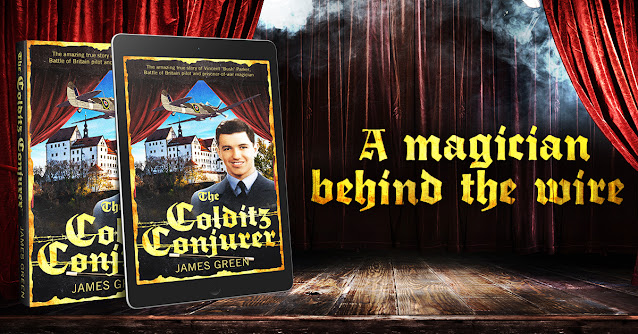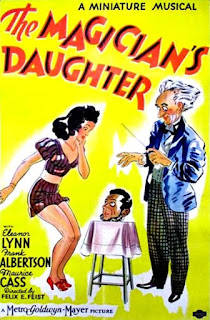Dutch magician deported to extermination camp
Dutchman, Louis Lam (1903-1943) was a first-rate magician, specialising in card tricks and mental effects. Born and raised in Amsterdam, his primary job was as a trade correspondent. But, by the late 1930s he was making a name for himself as a writer of magic. His trilogy of English language books, Would You Believe It (1935), Watch Me Closely (1937) and Be Deceived (1939), were published in the U.K. and sold well. Lam also contributed to other books, including Fast Ones (1940) by Joseph Ovette. He was a member of London's Institute of Magicians and was increasingly well-connected with magicians around the world.
Lam's magic writings may have been prompted by the situation in his homeland. In the late 1930s, anti-Semitism was on the rise in Europe. As a Jew, Lam would have found it increasingly difficult to get work. His books were, perhaps, an effort to generate an income to look after himself and his family. In May 1940, Nazi Germany invaded and occupied the Netherlands and Lam's predicament grew worse. Throughout occupied Europe, the Nazis were imposing arduous rules on Jews, concentrating them in ghettos, and later sending them to concentration and death camps where they were immediately or eventually murdered.
Canadian Joseph Ovette wrote in the foreword to his book, Fast Ones, that its purpose was to raise funds for Lam. He describes his friend as "a fine gentleman-magician" who is caught up in a "malstorm of tragedy" [sic]. He ends by holding his "Thumbs Up" for Lam, hoping he will be okay. Presumably some of the money from the book reached Lam, and he managed to keep a low-profile, for he remained in the Netherlands and kept active in magic as the war went on.
Bookings for all performers, magicians or not, Jewish or not, were becoming few and far between as the war progressed. Once over-crowded night clubs and theatres were emptying out. Now the patrons frequenting the clubs were German soldiers and many Dutch performers did not want to entertain the enemy. Restrictions on Jewish performers would have denied Lam the scraps of bookings that were still available. Even if Lam didn't rely on paid performances for income before the war, his work as trade correspondent would similarly have dried up since the invasion.
Lam's solution was to turn again to writing and in April 1941, almost a year into his country's occupation, he co-founded a magic magazine. Partnering with magician, Henk Vermeyden, who operated a magic studio called Triks, their magazine took the same name. Published monthly, it no doubt kept Lam busy writing content, while Vermeyden managed the publishing side. Triks was a sixteen-page periodical full of reviews, trick instructions, news, and tips. It became the foremost 'trade magazine' for magicians in the Netherlands and was just approaching the end of its second year of publication, when the inevitable happened.
In late February or early March 1943, Louis Lam, was arrested. Without warning, he was taken from his home and sent by train to the Westerbork transit camp in the northeast of the country. Westerbork was a staging camp from where the Germans would deport Jews and other untermensch (sub-humans: Nazi term) to camps in Germany or Poland. Camp Westerbork had a school, orchestra, hairdresser and other facilities, designed by SS officials to give inmates a false sense of hope for survival and to aid in avoiding problems during their onward transportation. It is possible that Lam performed tricks there for the children, doing what he could to calm their fears.
Lam likely only spent a few days at Westerbork. The camp population was transient and people would be moved on quickly to make space for others coming in. On 20 March, he was forced onto another train, into a carriage meant for freight or livestock, and sent almost 900 miles east to Sobibor extermination camp in Poland. Within a few hours of his arrival, stripped naked, Lam was killed by gassing.
A month after Lam's death, aged 39, the first of the third volume of Triks was about to go to print. Suddenly, the Reich Commandant, the Nazi's administrative body in the Netherlands, instructed Vermeyden to shut it down. This might have been due to Lam's involvement, or other factors such as paper controls. Vermeyden did what he could to get the decision overturned but failed. Instead, he corresponded with many subscribers illegally. "I felt it was my duty to keep in touch with you" he later wrote.
Then, a few months after liberation, in October 1945, Triks was resurrected. It was a smaller magazine due to the scarcity of paper, but it was back. The first issue of the rebooted magazine was full of in-memoriam notices for magicians, many of them Jewish, who perished during the war. It also established a fund, 'Triks Relief Action', and called on subscribers to send in unwanted magic props, for distribution to magicians who had lost everything during the war.
Triks continued until 1973 and its four decades of publication stand as a legacy to Lam. He founded it, at incredible risk to himself, in a brave effort to bring together Dutch magicians who shared a common bond in magic, at a time of great hardship and suffering.
Louis Lam was one of many Jewish magicians to die at the hands of the Nazis during the war. Others killed at Sobibor included Blitz (Malovitz or Maloitz) a mentalist and muscle reader who did blindfold driving. Also, Ben Ali Libi (Michel Velleman), another Dutch magician. I'll write about these men in a future blog.










Comments
Post a Comment